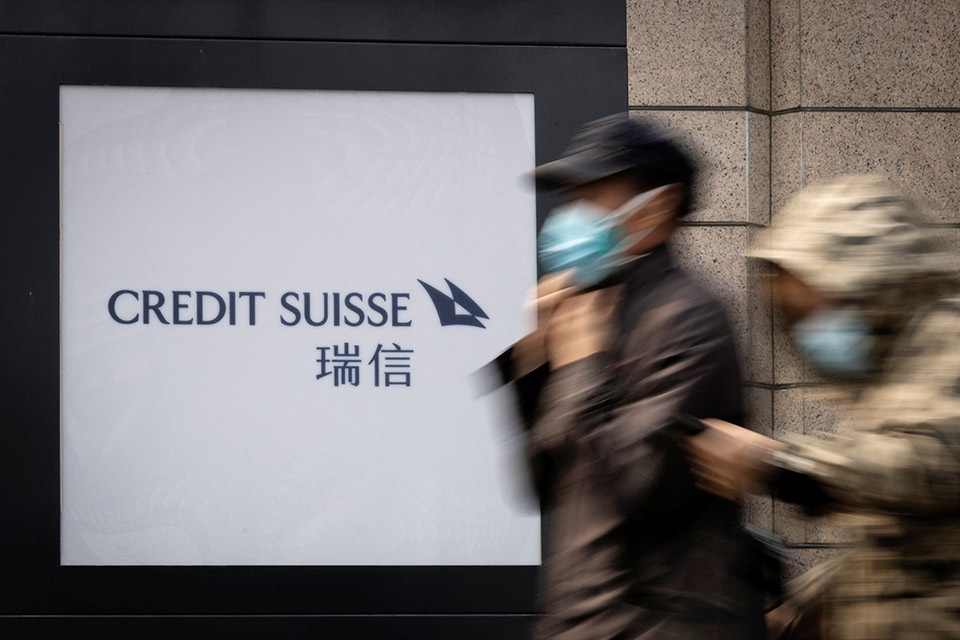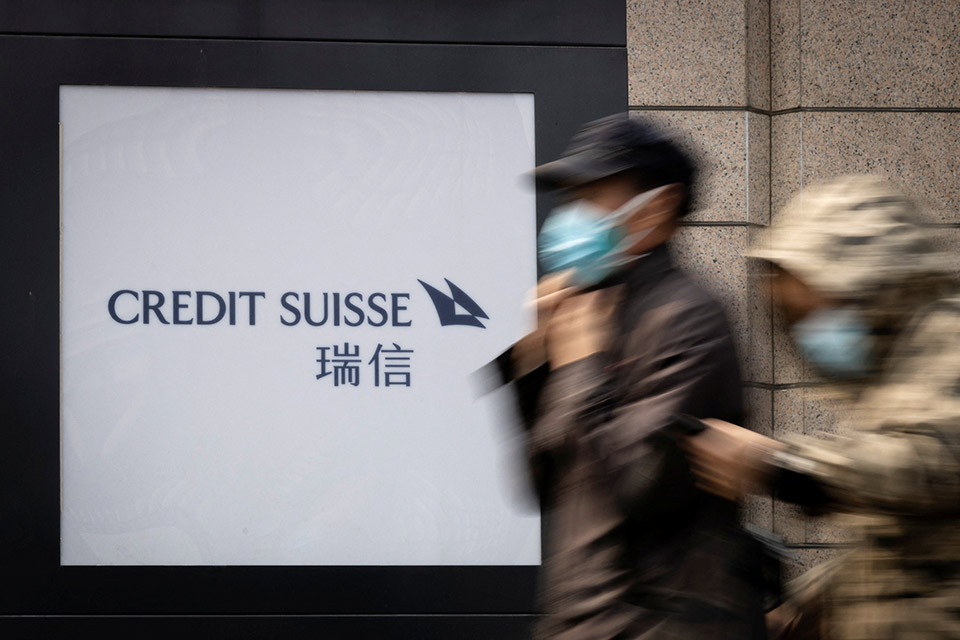
You know, if you were looking at two investment banking franchises to bolt together in Asia, trying to avoid obvious overlaps and seeking to build a business with across-the-board strength, you could do worse than picking UBS and Credit Suisse.
But there is a very big ‘if’. Two ifs, in fact.
On paper, the investment banking operations of the two newlywed Swiss houses look like a more than decent match. People in the market are tending to describe it as a cross between a bank that is strong in northeast Asia (UBS) and one that is strong in Southeast Asia (Credit Suisse).
But that is reductive: each has unlikely pockets of strength in the other’s overall bloc.
Let’s go country by country. UBS is stronger in Greater China, particularly on the big-ticket capital markets and advisory roles out of Hong Kong, although in practice the banks have tended to alternate in mainland China investment banking depending on the environment of the time.
Credit Suisse, as is its wont all over the region and the world, tends to play China more through high yield on the debt side, tech in equity capital markets and advisory, and in bespoke deals that it often structures itself.
So, two different models.
Neither is great in Japan, but UBS is clearly stronger.
In Korea, it is the other way around: Chun Kee Lee’s Credit Suisse team in Seoul is regularly on pivotal M&A and equity mandates, whereas UBS is relatively weak.
Together and apart
Credit Suisse does much more in southeast Asia than UBS and pretty much anyone else, but again it is not quite that simple: UBS is stronger in the Philippines and Thailand. Credit Suisse leads the field in Indonesia, perhaps the market in which it has had the greatest success, partly down to former Apac chief executive (and Indonesian native) Helman Sitohang.
Credit Suisse is also among the top names in Singapore where it has a clever, opportunistic, well-connected presence.
Then in India, Mickey Doshi’s team for Credit Suisse does a lot of interesting and often bespoke deals, as well as appearing on many of the key IPOs. According to Dealogic, it is the number one-ranked bank for investment banking revenues year to date there.
UBS, on the other hand, is nowhere in India.
In Australia, nobody would dispute that UBS – even after its raft of departures for Barrenjoey – is among the most powerful investment banking houses in the nation.
There is likely to be a big difference between the potential franchise value on paper and the actual business that emerges
And in frontier markets such as Vietnam and Pakistan, Credit Suisse has long been the leading foreign name for deals (partly because they go to places other banks won’t touch).
Glue UBS and Credit Suisse together then, and you get a bank with no obvious gaps, impressive combined league table heft, and some very smart people.
If you put the Apac investment banking revenues of both houses from 2022 together, instead of having the eighth ranking bank (UBS) and the 13th (Credit Suisse), you’d have one with more net fee revenue than Citi, JP Morgan, Goldman or Morgan Stanley, outstripped only by some of the mainland houses.
In 2023 in the year to date, you’d have a net revenue figure ranking third for the region, again behind Citic Securities and China Securities, outstripping all global competitors.
That is what you get when you merge the two. Don’t you?
Well, here’s problem one. If the deal goes through, who from Credit Suisse is still going to be around by the time it completes?
Staff
Even before it became clear Credit Suisse could not survive alone, many of the bank’s most talented and senior staff had headed for the exits. In February, Zeth Hung, vice-chairman of Apac investment banking and capital markets (IBCM, in the bank’s parlance), stepped down after 25 years.
He followed Greater China chief executive Carsten Stoehr out the door, and was in turn followed by Nick Silver, co-head of equities for Asia Pacific, and many of his team.
Other departures have included Singapore chief executive Chien Chien Wong and deputy wealth CEO for the region Young Jin Yee, now to be found at Deutsche Bank.
All of that is before the axe fell. It is likely it is only going to get worse.

Credit Suisse still has talented investment bankers all over the region. Aside from those already mentioned, Edwin Low, the chief executive for Asia Pacific, Apac IBCM co-heads Kuan Ern Tan and Joe Lai, and southeast Asia CEO Rehan Anwer – who built much of the frontier business – are all capable. They, with Singapore coverage head Angeline Aw, helped Credit Suisse win Euromoney’s Best Investment Bank in Singapore award in 2022, where it was all over the city state on advisory (the bank won in Korea, Vietnam and Pakistan too). But how many top names will still be around by the time the banks are put together?
There is a second issue. Credit Suisse has always been a highly distinctive investment bank in Asia, and great fun to write about, because it does deals unlike those any other banks do. Partly this is creative use of the balance sheet, building clever structured deals, often for local sponsors in markets such as Singapore: they tend to pay good fees and generally work out just fine.
But there are also deals where other banks look at them and say: how did they get that through due diligence? Sometimes this is geographical – you don’t find many other top international names banking Laos, Papua New Guinea or the Maldives – but more often it is a question either of balance-sheet commitment or reputational risk.
After several years of (generally non-Asian) scandalous misjudgements from Greensill to Archegos, it is not unreasonable to imagine that UBS is looking at the book of business Credit Suisse will bring over and thinking: we’ve got some work to do going through this lot.
That is investment banking. The wealth side is a whole other issue.
Wealth books
Again, on the face of it, putting together the two most powerful forces in Apac wealth – depending on how you define wealth – has a lot to recommend it.
Private banks in Asia have been fighting tooth and nail over relationship managers for years, all the more so since Citi made wealth a regional and global priority. What an opportunity!
Plus, there are again synergies. UBS is outstanding in Greater China wealth management, Credit Suisse in southeast Asia.
Again, though, there are ifs. The first is that Credit Suisse’s better RMs are already being picked off by rivals. And the second, again, is this question of whether or not the Credit Suisse book of business passes muster with UBS’s compliance arm.
For example, Credit Suisse is believed to have clients in Indonesia who might not be able to be onboarded today, but are kept on because of legacy relationships. Move them across to UBS and will they become, effectively, newly onboarded? Can they be? If not, where do they go?
There is also the question of whether or not that money wants to move. As my colleague Elliot Wilson notes: “It doesn’t always work that way. Maybe an ultra-high net-worth client of Credit Suisse has a longstanding antipathy towards UBS. Perhaps they’d prefer to have more of their money managed in southeast Asia by DBS, in Europe by Deutsche and in Latin America by Santander or JPMorgan.”
It is not automatic that one can simply add the two wealth books together and manage the resulting figure. Chairman Colm Kelleher has said as much: “You cannot just put numbers together and reach a sum – you have to understand there is a huge amount of risk in integrating these businesses.”
The two banks will have notably different cultures in wealth too. Credit Suisse has long claimed to have its investment bankers and wealth bankers working seamlessly together, with their remuneration positively impacted by any evidence of partnership.
UBS tends to say something similar, but in practice it has a greater separation between the two divisions.
So, there is likely to be a big difference between the potential franchise value on paper and the actual business that emerges if the deal goes through in its current form.
Kelleher is already talking about needing four years to complete the integration. Expect a chunk of that to be spent in Asia.




